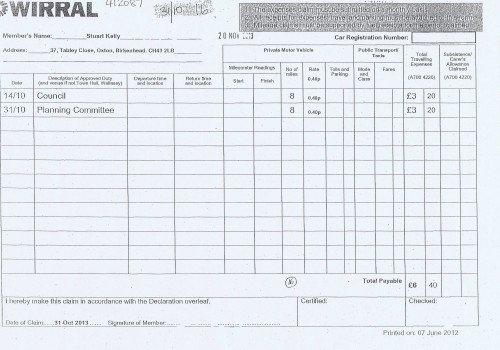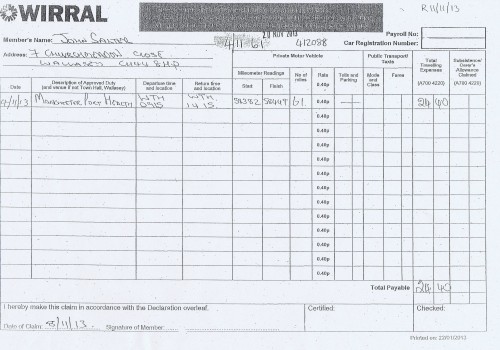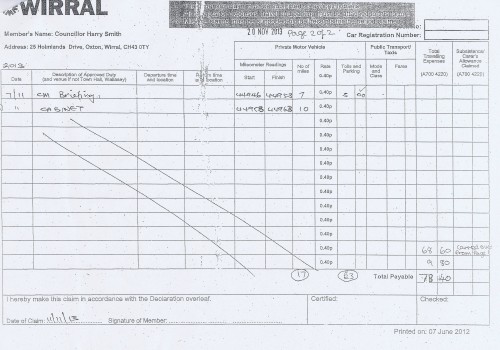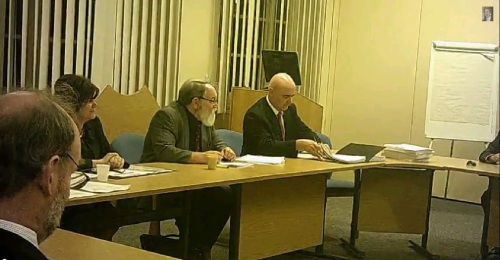Wirral Council: It’s time for change on Lyndale, consultation and decision making
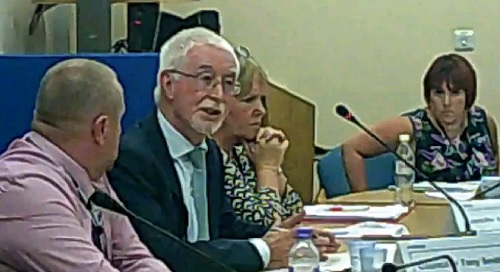
Well Emma Rigby has beaten me to it by about six to seven hours about the special Cabinet meeting on the 17th December 2014 is to decide on the future of Lyndale School.
The special Cabinet meeting to discuss the future of Lyndale School is now down to meet in Committee Room 1 in Wallasey Town Hall, Brighton Street, Seacombe starting at 6.15pm. It’s a public meeting so anyone can attend. The agenda should be available around the 10th December. However many of the reports that will be on the agenda have already been published either as part of the consultation or for previous Cabinet meetings on this subject.
I’m glad it isn’t the other special meeting of Cabinet next week which will be about something else.
I’ve done a bit of thinking about the consultation, officer advice and councillor decision-making on the subject of disability issues ahead of Friday’s meeting of the Highway and Traffic Representation Panel.
The constitution of Wirral Council states that councillors have to take on board the responses to a consultation and officer advice when making decisions.
What used to happen was a consultation would be agreed. It would run for x weeks or xx weeks, then there’d be a further public meeting at which all the consultation responses were published and the matter discussed.
Now what seems to happen at Wirral Council is this (not just over Lyndale but other matters).
A consultation on whatever change or policy issue is held running from date x to date y.
Following the end of the consultation (date y) Wirral Council employees read through the consultation responses. They then pick out the bits out of the responses they want to and put them in a report. In fact, as the ideas expressed in this report won’t be attributed back to the consultation respondees in academia it would be classed as plagiarism.
Once they’ve cherry picked the bits of the consultation they want to respond to, they’ll include a summary of them in the report, but alter the responses by including a response from officers.
Often these responses will state how the people responding (although they raise valid points) are somehow wrong and the recommendation consulted on should just be agreed (by councillors).
Councillors never see the consultation responses, nor do the public. Some consultation responses people with publishing capabilities (for instance individual councillors or political parties) are published during the consultation.
So what eventually happens is politicians just see a one-sided report written by officers, with brief references to the consultation responses but with more in the report stating officer’s advice than the actual consultation responses.
Naturally anything inconvenient brought up in the consultation, or points raised that officers don’t have a clever answer to gets left out of the public report.
Those who responded to the consultation (if they’re lucky) turn up to the public meeting where this is decided. If by some minor miracle one of the people responding to the consultation actually gets permission to speak at the meeting from the Chair.
Usually they are told they can’t speak as Article 21 although signed up to by Wirral Council was never implemented in their constitution. Although people do have a legal right (in the Human Rights Act 1998 c. 42) to freedom of expression, they will be told they can’t speak either. In an authority that gets annoyed with the press for filming public meetings what do you expect?
In my opinion, it’s a terrible, terrible way to run local democracy and make decisions. It leads to widespread resentment of certain politicians (and Wirral Council employees) and makes people think it’s terribly unfair. Maybe it suits some people though.
It means you have a two tier system. Those with the education, resources and/or connections can get their voice heard on any issue they want. Everyone else (even if they’ve responded to a consultation) just gets lost in the crowd.
It’s something I find personally very wrong about Wirral Council democracy and needs to change as a matter of urgency.
Take both Liverpool City Council and Chester West and Chester as examples. In both cases people can table questions at certain public meetings and speak at public meetings even if they’re not councillors or employees of the organisation.
On Wirral, especially since the abolition of the Area Forums, the public seem to have been written out of the political process. OK they get a vote (or two votes next year), but that’s about it. In many places people know their vote won’t make a difference to the outcome leading to apathy.
The rest of the time (outside of elections) the public are politely ignored by politicians who know they only need to get a minimum of 42% of the votes of the people who do vote to get re-elected under the first past the post system. It’s led to a situation where senior Wirral Council officers and senior politicians have too much power and the checks and balances just aren’t even there or ain’t working.
When the checks and balances are used (such as call in) councillors are just accused of playing party politics for actually holding other politicians to account!
Nothing will change unless the people demand it. Even then the politicians will probably get excuses from the employees as to why changes can’t be made. Even the unions seem to be having a hard time.
I despair of Wirral Council politics at times, I really do! The fallout from what’s going on affects my workplace too. However it’s time to come up with a plan to bring about change and to carry it out. I know the press from a balance perspective aren’t really supposed to have an opinion on matters other than freedom of speech/freedom of expression/the media.
However it’s time to point out that although there are always the elections in May 2015 that the fundamental nature of how Wirral Council makes decisions is either broken, fundamentally flawed or being routinely abused by those with vested interests in maintaining their power base.
If you click on any of these buttons below, you’ll be doing me a favour by sharing this article with other people. Thanks:





